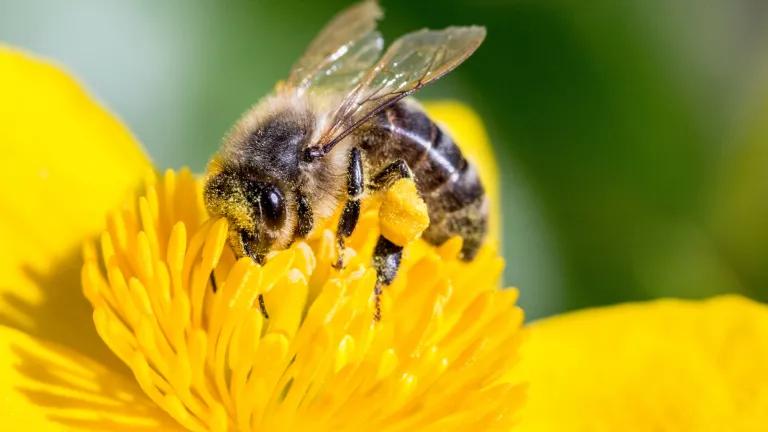Avoiding Bioplastic: New Year, New Tea

At NRDC we choose quality goods and services that reflect our values and support companies that align with our mission. Even with the best of intentions it can be difficult to understand who to purchase from and what to look for. Upon reading a recent study, we found pyramid shaped tea bags, like the ones we were using, are leaking billions of microplastics. We decided investigate further the impact of bioplastic in the hopes of findings a better option.
What is bioplastic?
It is made from plants or other biological materials, and most commonly created by converting sugar from corn or sugarcane to polylactic acids (PLAs).
Is bioplastic compostable?
Bioplastic, even if it is certified ASTM D6400 compostable, cannot be composted at home and most municipal composting facilities rarely accept or are able to process this type of material. For it to biodegrade it takes a very specific environment of 122 degrees Fahrenheit and 80 percent humidity.
How is bioplastic disposed of?
Ideally, the bioplastic item is sent to a compatible compost facility. The more likely routes though are the item is either:
- Tossed in municipal recycling. Here bioplastic will contaminate the petroleum-based plastic that is in the process of being recycled causing the entire batch to be sent to the landfill or incinerator.
- Ending up in our ocean. Once there, it will not biodegrade instead it will break down into micro-sized pieces, lasting for decades, and presenting a danger to marine life. [1]
Who is our new tea supplier and why?
We decided to begin purchasing from Numi Tea because their company:
- Aligns closely with the NRDC Catering Policy which means catering purchases (like tea) must reduce damage to the environment, exploitative labor, and food shortages for others. More specifically Numi Tea:
- Creates tea that is Fair Trade Labor Certified and Certified Organic.
- Is a Certified B Corporation. This means it meets the highest standards of verified social and environmental performance, public transparency, and legal accountability to balance profit and purpose.
- Purchases carbon offsets for its corporate office, staff travel, and tea, spice and herbal materials shipments.
How do we dispose of our new tea?
In Vision 3 of the NRDC Sustainable Operations Plan, we make a commitment to achieving zero waste. With this in mind, it is very important we understand the post-consumer life of the tea:
- The natural hemp-based unbleached filter-paper tea bag can be composted in at home bin or by any commercial facility.
- The outer packaging can be discarded in a TerraCycle box. While we try to avoid purchasing items packaged or made with hard to recycle material that requires TerraCycle, Numi Tea’s outer packaging is printed with soy-based ink, packaged with no plastic shrink wrap, and made from 85 percent post-consumer waste. By purchasing goods that utilize post-consumer waste we are helping to support the recycling industry.
Seeing Your Purchases Through a New Lens
Take a look around your home and ask yourself if your purchases support your health and the health of planet. One of the first steps could be learning more about materials in your home that are hiding hazardous chemicals. Together, as consumers, we can begin to prioritize purchases that support the future we want.



